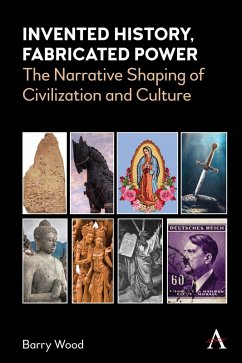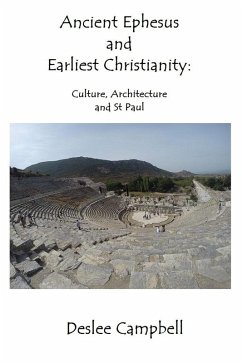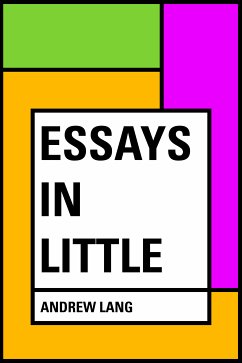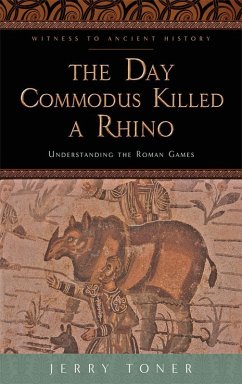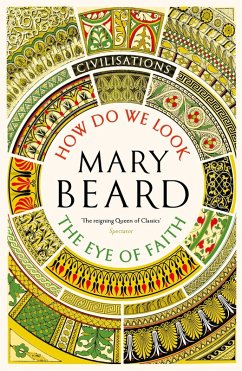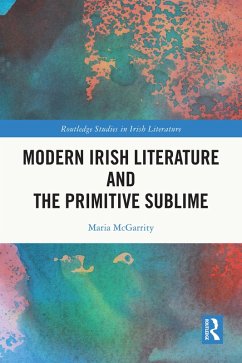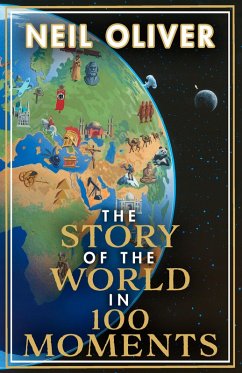
Invented History, Fabricated Power (eBook, ePUB)
The Narrative Shaping of Civilization and Culture
Versandkostenfrei!
Sofort per Download lieferbar
92,95 €
inkl. MwSt.
Weitere Ausgaben:

PAYBACK Punkte
46 °P sammeln!
Typically we think of power as economic, political, or military, but fictional narratives attached to kings, empires, religious founders, and societies have been used to create and enhance power and authority since the beginning of civilization. Invented History, Fabricated Power presents evidence from cultures ancient and modern, Eastern and Western, to demonstrate that narrative extends well beyond literary works (plays, poems, epics, novels) where it is usually studied by literary specialists. At the same time, there is much to be learned about the power of narrative from literary analyses ...
Typically we think of power as economic, political, or military, but fictional narratives attached to kings, empires, religious founders, and societies have been used to create and enhance power and authority since the beginning of civilization. Invented History, Fabricated Power presents evidence from cultures ancient and modern, Eastern and Western, to demonstrate that narrative extends well beyond literary works (plays, poems, epics, novels) where it is usually studied by literary specialists. At the same time, there is much to be learned about the power of narrative from literary analyses which are herein undertaken for a number of lesser known works: Ramayana, Mahabharata, Shahnameh, Sejarah Melayu, Negarakertagama and Kebra Nagast. As an imaginative endowment of humans, however, "narrative knowing" is a cognitive universal-the primary way we organize, remember, and communicate our experience and knowledge. It is, thus, a faculty susceptible to narratives that construct and enhance power for persons, kings, empires, societies, religions, and cultures.
The result of the book is a survey of narrative power in familiar Western cultures (Greek, Roman, Frankish, British), less familiar Asian cultures (Chinese, Indian, Japanese), and a number of lesser known cultures typically bypassed by historians (Persian, Ethiopian, Iroquois, Malaysian, Aztec). It also seems important to take a hard look at the Roman Church where a series of forgeries established papal power that persisted long after the forgeries were exposed. It also seems important to recognize that the Marxist economic analysis included an unlikely futuristic scenario that was corrupted by revolution and eventually failed. The astonishing Nazi ideology promulgated by Adolf Hitler was founded on fictional analyses of both "Aryans" and Jews but nevertheless inspired "willing executioners" to carry through the "final solution" of the Holocaust.
Eventually we consider our own consuming ideology, most notably the idealistic narrative of liberal democracy now available to only a fraction of the world population. We have come to recognize it is propped up by a desire for control, comfort, and consumption-a way of life that now endangers human survival as environmental degradation, resource depletion, earth-system overshoot, and global warming are undercutting its narrative assumptions.
The result of the book is a survey of narrative power in familiar Western cultures (Greek, Roman, Frankish, British), less familiar Asian cultures (Chinese, Indian, Japanese), and a number of lesser known cultures typically bypassed by historians (Persian, Ethiopian, Iroquois, Malaysian, Aztec). It also seems important to take a hard look at the Roman Church where a series of forgeries established papal power that persisted long after the forgeries were exposed. It also seems important to recognize that the Marxist economic analysis included an unlikely futuristic scenario that was corrupted by revolution and eventually failed. The astonishing Nazi ideology promulgated by Adolf Hitler was founded on fictional analyses of both "Aryans" and Jews but nevertheless inspired "willing executioners" to carry through the "final solution" of the Holocaust.
Eventually we consider our own consuming ideology, most notably the idealistic narrative of liberal democracy now available to only a fraction of the world population. We have come to recognize it is propped up by a desire for control, comfort, and consumption-a way of life that now endangers human survival as environmental degradation, resource depletion, earth-system overshoot, and global warming are undercutting its narrative assumptions.
Dieser Download kann aus rechtlichen Gründen nur mit Rechnungsadresse in A, D ausgeliefert werden.




